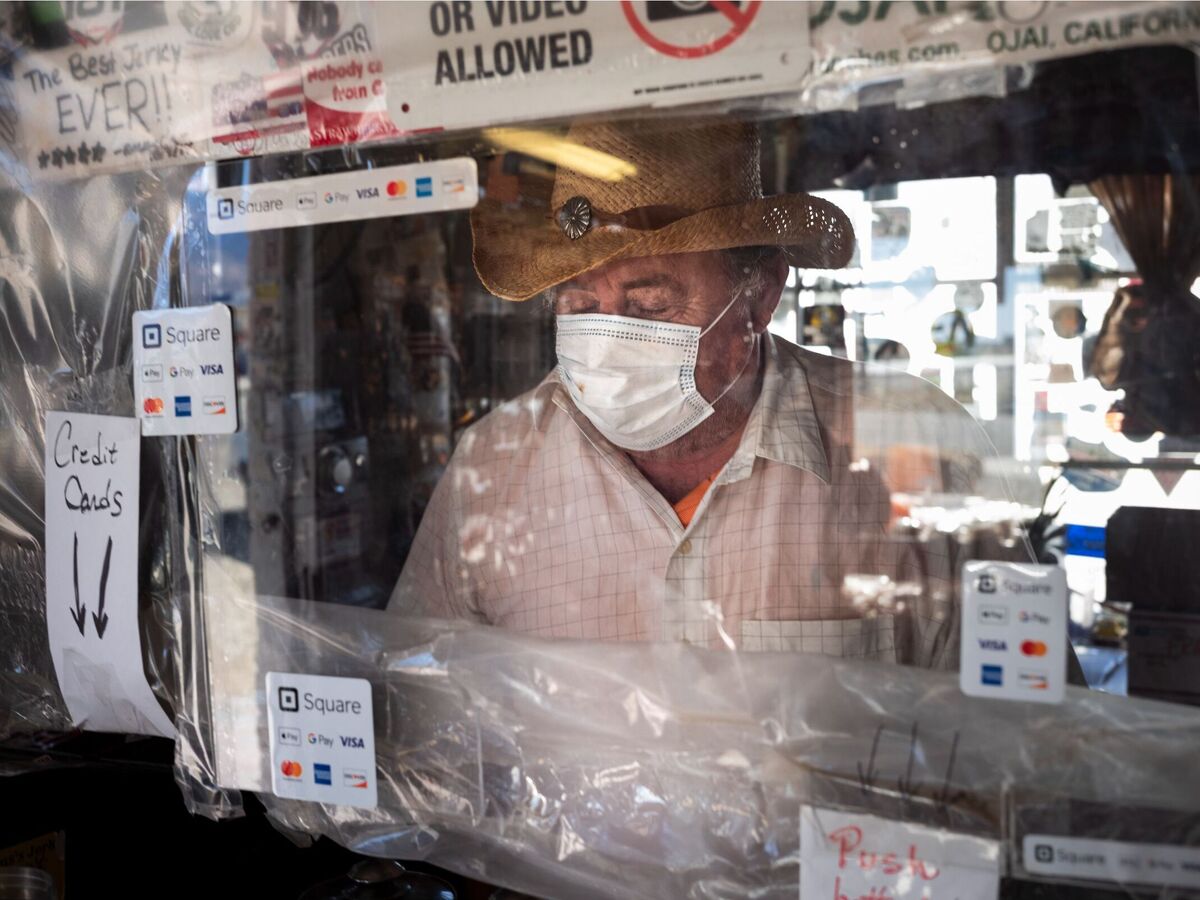Image

Image of Gus's Jerky by vhines200 from Flickr
Updated 2/11/2022 at 7:51 a.m. An error in discussing prorated benefits, “did work in person,” has been corrected to “did not work in person.”
The following opinion article represents the views of the author and not necessarily those of Westwood Minute.
According to the BBC, in 2011 and 2012, government spending on the war in Afghanistan peaked at $100 billion per year. From 2016 to 2020, we spent roughly $50 billion per year. I am not interested in debating whether this was money wisely or foolishly spent. The point is simply that Uncle Sam forked over at least $2 trillion to wage this battle. Whether it was great statesmanship or folly, President Biden pulled our troops out of Afghanistan.
On another item of spending, many people received three COVID-19 stimulus checks, which were associated with a $850 billion price tag. Aside from the maximum income qualifications, citizens received this government largess regardless of the economic impact of the pandemic. A young, well-paid techie working remotely qualified for this funding, as did a convenience store clerk or a laid-off bartender. The point is not to debate economic policy; the point is to consider a more just reallocation for this federal funding.
Despite occasional tips of our collective hats to first responders and medical professionals, we have done little to recognize those who have been on the frontlines during this pandemic. What about grocery store clerks, truckers, subway conductors, postal employees, meat packers, teachers, and the vast army of people who do work that cannot be done remotely? It takes courage to show up to work without a vaccine, without testing, and without proper PPE for indoor work where isolation is impossible, armed only with the terrifying knowledge that this virus can and does kill people in just these situations.
Things have gotten much safer as we developed and received vaccines and effective medical treatments. We can now purchase high-quality masks and even get at-home tests. To be sure, there is still reason to be fearful. Many of us received three novel vaccines rushed through in record time. No one knows the long-term implications of the vaccines or from having had the virus. Yet, the fact is that the vast majority of in-person workers who showed up and continue to show up continues to be inexcusably unrecognized.
What could meaningful recognition and reward for their bravery look like? CNBC cited a study that claims that 77 percent of Americans report feeling anxious about their financial situation. We can surmise that many of the in-person workers would share this concern. One approach could be a one-time financial payout. I believe that would be wrong-headed. Don’t get me wrong - anyone offering to send money my way would not be refused, but there are other ways more effective and just ways.
Because most businesses no longer provide defined benefit pensions, many Americans are worried about having enough to retire. Social security, which makes up a large portion of government spending, does not provide enough money to ensure a comfortable retirement. If we reallocated $100 billion (two years of pandemic work for the two years of recent spending on the Afghan war) and formed a fund to cover only those workers who had to show up and work in person, that would be the first step. Since there would not be an immediate payout, the government could have time to qualify people accurately for this program. There could be options to police, fire, educators, and other public employees who typically have defined pensions such as extra time credited to their pension. There would be a prorated benefit for those who did not work in-person for the entire time, like the many educators who got to work remotely. The only work that would be rewarded would be the in-person work. The stress of working during the pandemic was great. Giving these workers back some time with an earlier retirement or a more comfortable one seems just.
A time-honored use of this fund would involve preferential loan rates and savings rates. Providing a lower interest rate on an existing mortgage would take care of many Americans’ significant concern of affording their mortgage when they retire. Although mortgage rates are historically low, given the cost of houses, a 1 or 2 percentage point decrease in a mortgage would yield tens of thousands in savings. A meaningful savings rate 2 to 3 percentage points above prime would be a great way to incentivize savings for retirement without breaking the bank.
Another concern for Americans relates to the outrageous cost of higher education. Like the GI bill for education, in-person workers could have a special fund to help defray the costs of education. This funding could include some degree of loan forgiveness which would be especially well-received in the medical field where education costs are prohibitive. An advantage of providing an education benefit is the return on investment it provides.
The cost of long-term medical care is another financial worry. Perhaps access to the medical care of the Veterans Administration could be an option for the in-person COVID-19 heroes to receive medical care and treatment. The pro to this benefit would be that it addresses the medical concern in-person workers faced during a pandemic while not forcing people to receive it if they did not want it.
A cost-free approach would be through including in-person workers in preferential hiring qualifications.
As former military members are rightly rewarded for their service, the same could be true for in-person COVID-19 workers.
A lot of people struggled with the pandemic. Tragically, some lost their lives or loved ones. Some lost their jobs or their businesses. Some missed the unfettered freedom of our past. Some, however, faced the real specter of danger, illness, and death because their jobs require in-person indoor work with others. It is high time to recognize these people and reallocate resources to financially reward their bravery and sacrifice.